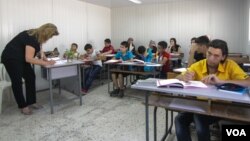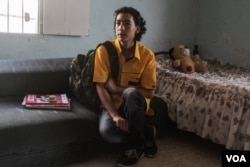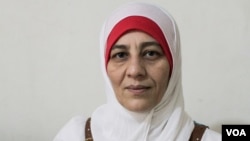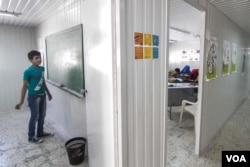Schooling hopes have been raised for hundreds of thousands of Syrian children, thanks to a major new education drive launched in Lebanon.
A near $100 million fund will go towards offering free lessons both in and out of the classroom, as part of an effort to nearly double the number of refugees being educated in the country.
The government-led plan kicked off at the start of the Lebanese school term, with underprivileged Lebanese youngsters also set to benefit.
It comes in the wake of a warning by UNICEF earlier this month that 13 million children are being denied an education due to conflicts in the Middle East.
The Classroom and Beyond
At a press conference earlier this week, Lebanon’s education minister said the focus of the Back to School campaign is “to ensure that every child on Lebanese territory has access to education.”
Funded by U.N. agencies and international donors to the tune of $94 million, the program aims to reach 200,000 Syrian children, as well as 166,000 Lebanese children.
It is estimated that there are more than 500,000 school-age displaced Syrians living in Lebanon, among a wider refugee population in the country totaling well over 1.2 million.
With more than 1,200 schools taking extra students, there also will be an increase in second shifts in which Syrian children are taught separately at schools in the afternoon.
Informal education beyond the classroom also will be extended.
The news was welcomed by Mark Chapple, Lebanon's program director of education for Save The Children. He called efforts so far a “laudable achievement.”
Chapple warned that education is “critical” for refugees who might otherwise face child labor, underage marriage or even the lure of radicalization.
“To miss out on a long period of education will have impacts on social cohesion, impacts on their prospects for the future, impacts on their health and longevity and, critically, their ability to rebuild Syria in the future.”
However, significant challenges remain.
About to Lose Hope
As part of these efforts, a pilot summer-time program has been giving Syrian children who have missed out on education the chance to catch up before term begins.
Among those taking part is 15-year-old Nidal Abdel Jalil, who has not been in a classroom since fleeing the Syria with his family at the start of the war more than four years ago.
“I was about to lose hope,” said Nidal, whose dream of being an engineer had seemed impossible after repeated failed efforts to get into a Lebanese school.
“If I join school, I can achieve my dream.”
Nidal said he has both enjoyed and learned much from the four-month program.
But like many others from a country where education is mainly in Arabic, he has struggled with the fact that lessons in Lebanon are often taught in French.
Still Missing Out
Competition is likely to be fierce, with many Syrian children still set to miss out.
Nidal’s mother Hasiba tearfully recalled her children’s requests to read signs for them, and said she is delighted her son made it into the summer program.
But she and husband Muhamed are still waiting and hoping that Nidal and his two siblings will get into school fulltime.
“My biggest fear was that they would grow up uneducated,” she said.
“When we were in Syria most children were in school. When they came here, no one accepted them.
“I am sad not only for my children but for all the children. But I am hopeful that they will be allowed [in to a school].”
Ambitious Targets
Whether the ambitious targets can be met remains to be seen.
Of the 10,000 who registered for the summertime catch up course, half that number actually took part.
Nidal is able to take a taxi to classes funded by relief organization Caritas. The education is free, but additional costs like transport can put schooling beyond many families.
One relief worker, who did not wish to be identified, warned that humanitarian organizations (NGOs) have been marginalized from the decision making process.
“There is a lot of expertise and support NGOs can bring to help this effort,” the worker claimed.
Time will tell whether Lebanon’s schools can cope with the large increase in students, added UNICEF spokesman Salam Abdulmunem.
“Every year there is increasing pressure on the system, on the teachers and schools," he said. “It’s a huge step forward, but it needs to be sustainable – we have a commitment for this year, but what happens the year after?”




